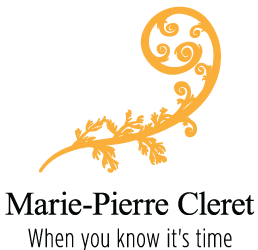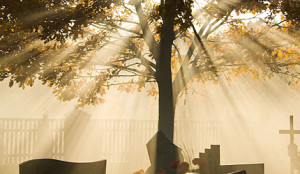Death. It comes to us, ready or not. Preparing for death and dying.
It seems there’s been a lot of it in my life the last month or so. The privilege of bearing witness to the thoughtful actions of a close friend as she deals with end stage ovarian cancer, seeing her preparing for death and dying. Not unexpected, an aging parent’s death. More shocking, a close friend’s partner’s sudden death. And of course, the terrible violent deaths in France with the attacks in Paris on Charlie Hebdo. How prepared were any of these people, I find myself wondering? How prepared am I for Death?
Last week, my sisters and I packed up the remains of my parents’ lives on the farm where they settled after we immigrated to Australia, more than forty years ago. For a week, we worked efficiently around one another, sorting books, personal papers, clothing, personal effects, all the paraphernalia that can be found in almost every household in terms of kitchen, bathroom and laundry bits and pieces. We found a bewildering array of things that had secreted their way into the back of wardrobes and cupboards, in high spaces in the roof, or that were relegated to wooden crates at the back of the garage near the house. At times, it felt like we had come to clear out the Tardis. Or Steptoe and Sons.
We found so many things from the Old Country: school books from when my mother was learning Latin at fifteen; exercise books with her careful script from when she took philosophy classes – notes on reason, morality. Even three books on the Napoleonic Code, from her brief foray into studying Law so many years ago. Two tiny porcelain children’s tea sets, carefully wrapped up in paper, nestled in the Styrofoam box in which she must have packed them for the trip to Australia. Hand embroidered table cloths, monogrammed linen, even an Hermes handbag! Why those particular things, I kept asking myself? Why, given that she would have had to choose and pack each individual object in order to bring it over with us? Why, given she knew that she was choosing to do a Tree Change (before it was fashionable), exchanging her life as a corporate wife for that of a farmer in rural Australia? What relevance could these possibly have had for her in the new life she was about to set up? I could not make any sense of many of these keepsakes, so carefully selected and carried over, only to be left untouched thereafter.
We pulled things out of cupboards, from behind book cases, from inside books! We dusted, cleaned, and scrubbed. Each object individually assessed: keep for one of us? Pack for the goodwill shop? Pack for sale? Throw out? Any time one of us was not sure what judgement call to make, a cry rang out. “Brains Trust? What do I do with this?” We’d confer, cast our lot, and move on to the next thing, the next task. We had given ourselves a week. A week to sort out the material things left after living for more than forty years in one house. A week to sort through so much accumulated stuff. At different times, we each exclaimed in bewilderment at the presence of one object or another. Old magazines, dusty, piled high on shelves up to the ceiling in the study. Old bits of electronic and computer equipment, carefully stowed away in cardboard boxes by my father. The grimy carcases of broken down household electric goods, awaiting some unknown fate on shelves here and there. Row upon row of preserve fruit and jams, long out of date.
It seemed to me that much of the stuff we sorted was completely irrelevant to either the life I had known my parents lived as farmers once we came to Australia, or to the life they came to live in their twilight years. I wondered what then made them hold onto it? Given how little culling had clearly been done once they came to the farm, it struck me how, in its own symbolic way, this reflected how little preparing they had done for their own death and dying.
As a child, we moved from country to country, every three to eighteen months. This meant constant extreme culling of our possessions whenever we moved, ruthlessly overseen by my mother. It seems both of my parents lost the art of taking stock, of deliberately making time to consider what might be worth keeping and what ought to be discarded.
I came back to Sydney looking at my own home with new eyes, looking inside my own cupboards, my own bookshelves. Now, I ask myself – what needs to be discarded here? What do I no longer need? What could I give away? And, finding many things I am holding onto that I know are no longer in use or relevant to my life now, reflecting on what it is I‘m actually holding onto, trying to find the meaning behind the stuff I hold onto long after it seems no longer relevant to my lived everyday life. More than this ‘stuff’ cull that this experience has prompted me to do, I find myself doing the equivalent of an emotional spring clean as I reflect: where are things at in my own relationships? While my mother’s cupboards were messy, and grimy, full to the brim with clutter and broken down junk, the relationships she left behind were in an equally poor state. I commit to leave things differently for those I leave behind.
I’ve come back determined to ‘clean up’ my emotional cupboards at least as much as my physical cupboards and shelves. Thinking of my mother’s expected death, and my friend’s and strangers’ sudden loss, I am reminded of how unpredictable death is. For most of us, it comes when it comes, in its own time frame and not on ours, usually without warning. Ready or not. Leaving everyone else around us to deal with the remains and the unanswered questions. In the rush and busyness of everyday life, I forget that I too need to prepare for death and dying by living with the end in mind. Each day since coming back to my own life, I’ve considered these questions for myself to keep my own emotional house in order –
- Am I being , doing , saying what I need to be / do / say in order to be ready should Death come knocking at my own door right now?
- Is there anything I need to say to make sure that a / this person knows what they mean to me?
- Have I been clear enough about what people mean to me with all the people who matter the most to me through my words and my actions?
- Is there anything I know is outstanding that I need to attend to in order to put things right between me and someone else with whom I have had a falling out or a misunderstanding of some sort?
- What concrete action can I take right now in order to bring about any healing that might be needed in any of my own relationships, past or present?
- How can I make sure that I do not add to the hurt and pain that has occurred in any relationship, and work instead towards building a different foundation for the future?
- What tendencies do I possess in myself that predispose me to repeat old mistakes in relationships, and what can I do about correcting those unhelpful tendencies?
- Can I let go of old hurts, old grievances in order to make more room in my heart to enjoy my life now?
Since coming back to my life in Sydney, I am happy to be making gentle progress both with the ‘stuff’ I want to shed, and with the emotional sorting out as well. I find myself feeling much more ready for Death. In doing so, I hope I leave those who survive me with an easier task as well.
In my reflections, I came across this useful book –
Bronnie WARE (2012), The top five regrets of the dying, Hay House Inc.
John IZZO, (2008), The five secrets you must discover before you die, Berrett-Koehler Pubs, Inc.


